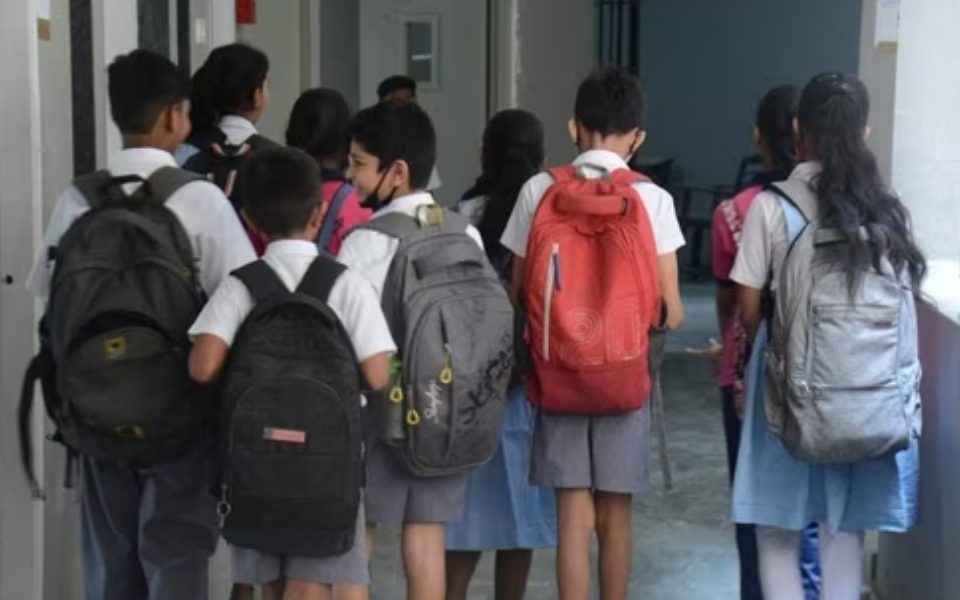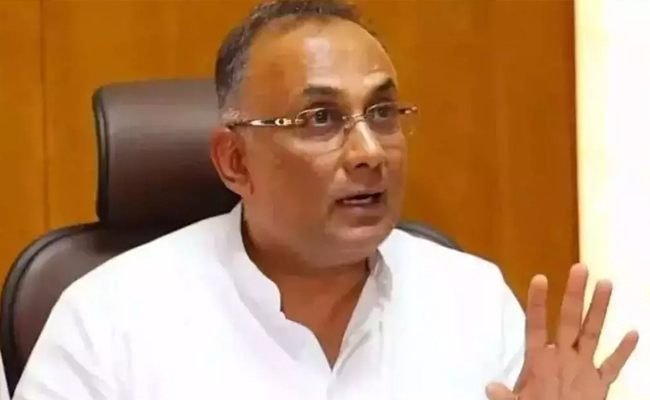Bengaluru, Mar 6: Writings of Jnanpith awardees Chandrashekhar Kambar and Girish Karnad, and Padma Shri award winner Devanuru Mahadeva have been introduced in a revised Kannada language school textbooks as per the guidelines of National Curriculum Framework-2005 by the Textbook Revision Committee (TRC) of Karnataka Textbook Society.
The TRC said it has revised the entire chapter of Namma Hemmeya Rajya Karnataka' in the sixth standard Kannada book with more details and pictures.
"Details and photographs of Chandrashekhar Kambar, Nalvadi Krishnaraja Wadiyar, H L Nage Gowda, Dr Siddalingaiah, Sri Siddeshwara Swami, Shantaveri Gopalagouda and Gavimatha of Koppal have also been included," TRC said in a statement.
The ancient dynasties of south India and royal families of north India have been discussed in the book. Also, a chapter on Vedic culture and the rise of new religions have been included in the 6th standard book.
In the same book, rights of the sexuality minorities have been included in the chapter on equality.
The title of a chapter religion' in 7th standard Kannada book has been changed to Dharmagalu' and Vishwaguru Basaveshwara' has been recorded in the same book as Cultural Leader' (Samskrutika Nayaka).
In the 8th standard Kannada textbook, the title of a chapter Jain and Buddhist sects' has been changed to Jain and Buddhist religions'.
In 9th standard textbook, the 15th-16th Century AD saint-poet Kanaka Dasa and his contemporary Purandara Dasa along with 19th Century AD saint-poet Santa Shishunala Sharifa have been included in the chapter titled Bhakti Pantha' (Devotional Path).
Kambar's Seeme', Karnad's Adhikara', along with Devidasa's Chakragrahana, M Mariappa Bhat's Namma Bhashe', A N Murthy Rao's Vyaghra Geete', Mahadeva's Edege Bidda Akshara' and Vachanas' of Akka Mahadevi have been included in the textbooks for Class-8 to Class-10.
Let the Truth be known. If you read VB and like VB, please be a VB Supporter and Help us deliver the Truth to one and all.
New Delhi: A bill to set up a 13-member body to regulate institutions of higher education was introduced in the Lok Sabha on Monday.
Union Education Minister Dharmendra Pradhan introduced the Viksit Bharat Shiksha Adhishthan Bill, which seeks to establish an overarching higher education commission along with three councils for regulation, accreditation, and ensuring academic standards for universities and higher education institutions in India.
Meanwhile, the move drew strong opposition, with members warning that it could weaken institutional autonomy and result in excessive centralisation of higher education in India.
The Viksit Bharat Shiksha Adhishthan Bill, 2025, earlier known as the Higher Education Council of India (HECI) Bill, has been introduced in line with the National Education Policy (NEP) 2020.
The proposed legislation seeks to merge three existing regulatory bodies, the University Grants Commission (UGC), the All India Council for Technical Education (AICTE), and the National Council for Teacher Education (NCTE), into a single unified body called the Viksit Bharat Shiksha Adhishthan.
At present, the UGC regulates non-technical higher education institutions, the AICTE oversees technical education, and the NCTE governs teacher education in India.
Under the proposed framework, the new commission will function through three separate councils responsible for regulation, accreditation, and the maintenance of academic standards across universities and higher education institutions in the country.
According to the Bill, the present challenges faced by higher educational institutions due to the multiplicity of regulators having non-harmonised regulatory approval protocols will be done away with.
The higher education commission, which will be headed by a chairperson appointed by the President of India, will cover all central universities and colleges under it, institutes of national importance functioning under the administrative purview of the Ministry of Education, including IITs, NITs, IISc, IISERs, IIMs, and IIITs.
At present, IITs and IIMs are not regulated by the University Grants Commission (UGC).
Government to refer bill to JPC; Oppn slams it
The government has expressed its willingness to refer it to a joint committee after several members of the Lok Sabha expressed strong opposition to the Bill, stating that they were not given time to study its provisions.
Responding to the opposition, Parliamentary Affairs Minister Kiren Rijiju said the government intends to refer the Bill to a Joint Parliamentary Committee (JPC) for detailed examination.
Congress Lok Sabha MP Manish Tewari warned that the Bill could result in “excessive centralisation” of higher education. He argued that the proposed law violates the constitutional division of legislative powers between the Union and the states.
According to him, the Bill goes beyond setting academic standards and intrudes into areas such as administration, affiliation, and the establishment and closure of university campuses. These matters, he said, fall under Entry 25 of the Concurrent List and Entry 32 of the State List, which cover the incorporation and regulation of state universities.
Tewari further stated that the Bill suffers from “excessive delegation of legislative power” to the proposed commission. He pointed out that crucial aspects such as accreditation frameworks, degree-granting powers, penalties, institutional autonomy, and even the supersession of institutions are left to be decided through rules, regulations, and executive directions. He argued that this amounts to a violation of established constitutional principles governing delegated legislation.
Under the Bill, the regulatory council will have the power to impose heavy penalties on higher education institutions for violating provisions of the Act or related rules. Penalties range from ₹10 lakh to ₹75 lakh for repeated violations, while establishing an institution without approval from the commission or the state government could attract a fine of up to ₹2 crore.
Concerns were also raised by members from southern states over the Hindi nomenclature of the Bill. N.K. Premachandran, an MP from the Revolutionary Socialist Party representing Kollam in Kerala, said even the name of the Bill was difficult to pronounce.
He pointed out that under Article 348 of the Constitution, the text of any Bill introduced in Parliament must be in English unless Parliament decides otherwise.
DMK MP T.M. Selvaganapathy also criticised the government for naming laws and schemes only in Hindi. He said the Constitution clearly mandates that the nomenclature of a Bill should be in English so that citizens across the country can understand its intent.
Congress MP S. Jothimani from Tamil Nadu’s Karur constituency described the Bill as another attempt to impose Hindi and termed it “an attack on federalism.”



_vb_22.jpeg)

